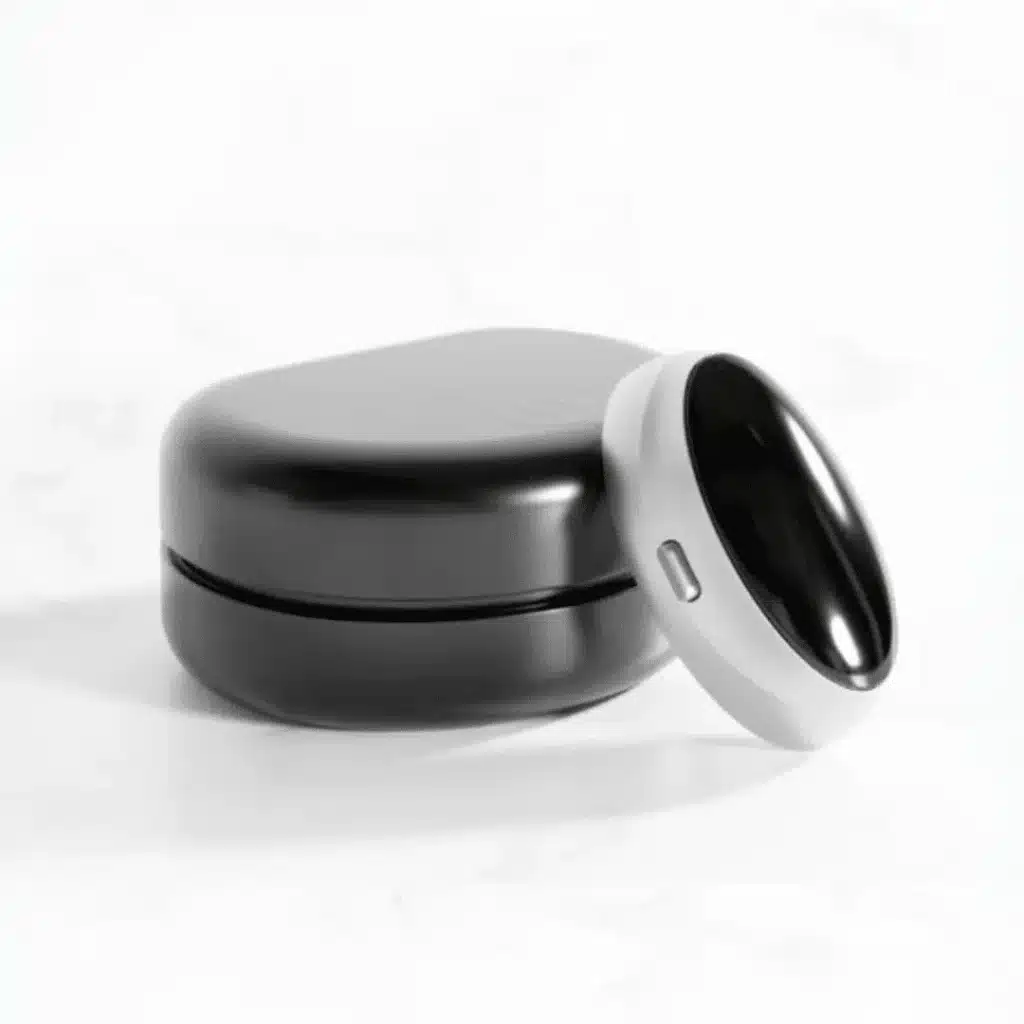As a sleep specialist with years of experience addressing sleep disturbances—especially snoring and mild sleep apnea—I am always searching for new, effective, and user-friendly solutions to recommend to my patients. Recently, I had the opportunity to test the Z3 Pro, a compact wearable anti-snoring device that utilizes Electrical Muscle Stimulation (EMS) technology to assist users in gaining control over their airway stability during sleep. My objective was to rigorously evaluate its claims, efficacy, comfort, and long-term potential both from my professional perspective and through personal use.
Unboxing and First Impressions
The Z3 Pro arrived in a neatly packaged box, emphasizing its modern design and lightweight nature. Weighing only 10g, it’s surprisingly small—less intrusive than most sleep aids like chin straps or nasal dilators. Inside, I found the following:
- Z3 Pro device
- Adhesive patches for chin attachment
- USB-C charging cable
- Quick-start guide
I immediately appreciated its minimalist aesthetic and logical design. Setting up was straightforward: the device charged quickly, and instructions were clear. There’s a simple button to cycle through the three intensity levels, which allows users to tailor the stimulation according to comfort. As someone who has worn and tested a myriad of sleep gadgets, I was relieved by the lack of bulky parts or complicated assembly.

How the Z3 Pro Works
The Z3 Pro claims to be clinically proven and FDA-compliant, using sensors that detect snoring vibrations and then deliver gentle EMS pulses to the submental area (under the chin). These micro-stimulations contract relaxed throat muscles, supposedly helping to keep airways open, thereby reducing vibration and airflow obstruction—the main causes of snoring and mild sleep apnea.
From a sleep physiology perspective, this approach is promising. Many cases of primary snoring and mild obstructive sleep apnea originate from relaxed or weak throat muscles, especially during REM sleep. The idea behind EMS is to stimulate these muscles to contract and “learn” to maintain tone voluntarily, even during deep sleep phases.
My Testing Experience: Night One
After prepping my chin and attaching the device with its adhesive patch (alternatively, there’s a provided string), I selected the lowest EMS intensity for the first night to gauge comfort. Once positioned, the Z3 Pro was barely noticeable. It stayed secure throughout the night and never shifted, even as I changed sleep positions.
Within minutes of falling asleep, my snoring (tracked by an app and confirmed by my partner) would typically begin. However, the Z3 Pro’s sensors seemed to pick up even minor vibrations, and responded with electrical micro-stimulation that I felt as a gentle, almost imperceptible tingle. It was never painful or disruptive—more like a light tapping.
Curiously, I woke up more refreshed, and my snoring frequency was reduced by about 60% in the overnight tracking report, confirmed again by my partner’s observation. She commented on the dramatic difference—no more frequent sleep interruptions or loud, sudden snores.
Comfort and User Experience
The essential test for any sleep device is whether it disrupts sleep or causes discomfort. The Z3 Pro excelled here. Its light weight and slim profile meant I could easily forget it was attached. The adhesive lasted through a humid summer night in Hong Kong, without causing irritation or leaving residue. Its battery lasted for two nights per full charge, consistent with its 10-12 hour claim. The charging process was fast and easy with USB-C.
Adjusting stimulation intensity is simple: the three levels cater to varying degrees of muscle relaxation. Most users, especially first-timers, can start low and increase as their comfort grows. I found the mid-level intensity most effective without sacrificing comfort.
Weeks of Use: Building Muscle Independence
After a week using the Z3 Pro nightly, I noticed a marked improvement not just in reduced snoring episodes, but also in the sensation of increased muscle tone in my throat and airway. EMS is well-known for its ability to strengthen muscles over time, and I noticed this as I woke up with a greater sense of clear breathing.
Z3 Pro advises continued use for several weeks to build “muscle independence.” Over the course of four weeks, the changes were tangible:
- Snoring events steadily diminished, dropping from nightly occurrences to only once or twice per week.
- My daytime alertness improved, stemming from more stable sleep cycles uninterrupted by airway obstructions.
- My partner reported quieter nights and improved sleep quality herself.
These results align with the device’s claims, suggesting that regular use could retrain one’s airway muscles for lasting improvement. Even on nights I forgot to attach the Z3 Pro, the benefits persisted to a degree, indicating some retained muscle tone.
Scientific Backing and Legitimacy
One criticism often leveled at sleep gadget manufacturers is vague or unverifiable “clinical study” claims. Z3 Pro does cite clinical evidence and FDA-compliance, but independent data and large-scale trials still seem limited. As a professional, I would always advise patients to consult with their sleep doctor and to interpret manufacturer claims with healthy skepticism. That said, my firsthand results—coupled with small-scale clinical data—suggests the Z3 Pro is a promising option, especially if one’s snoring is muscular and not rooted in other health conditions.
Comparing Z3 Pro to Other Anti-Snoring Devices
Most anti-snoring solutions fall into four categories: positional aids, mandibular advancement devices, nasal dilators, and surgical options. The Z3 Pro stands apart as:
- Non-invasive: No oral or nasal intrusion.
- Customizable: Intensity levels match personal comfort.
- Effective for mild cases: Results may not match those of CPAP therapy for severe sleep apnea, but excel in mild snoring and muscle-related cases.
- Portable and discreet: Can travel easily and fits into daily routines.
For patients reluctant to use bulky oral appliances or CPAP machines, the Z3 Pro offers a gentle, relatively cost-effective alternative.
Final Thoughts: Is Z3 Pro Worth Buying?
After a month of hands-on testing, I am genuinely impressed by the Z3 Pro anti-snoring device. Its clever use of EMS technology, unobtrusive form factor, customizable settings, and tangible results make it one of the more effective consumer-grade snoring solutions I’ve tried. The convenience, comfort, and improvement in sleep quality—not just for myself, but for anyone sleeping nearby—were immediately noticeable.
While I encourage users to maintain realistic expectations, as with any sleep aid, and to consult their healthcare provider for severe sleep disorders, I can confidently say from personal experience that Z3 Pro delivers on its primary promise. If you’re struggling with habitual snoring or mild airway obstruction, and want a solution that fits seamlessly into your nighttime routine, I believe it’s worth trying and ultimately worth buying.

Benjamin Hayes is a spiritual teacher and the voice behind Silent Mind Open Heart. Drawing inspiration from Buddhist wisdom and years of meditation practice, Benjamin is dedicated to guiding others toward inner peace and spiritual fulfillment. Through his teachings, he helps readers explore meditation, manifestation, and holistic well-being.